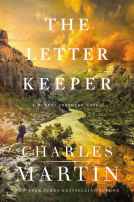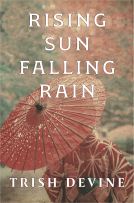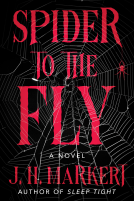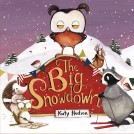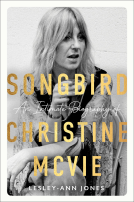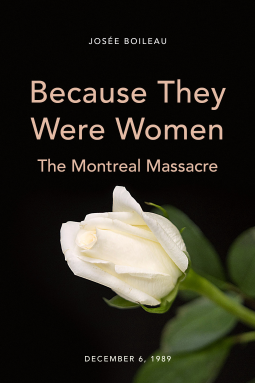
Because They Were Women
The Montreal Massacre
by Josée Boileau
This title was previously available on NetGalley and is now archived.
Send NetGalley books directly to your Kindle or Kindle app
1
To read on a Kindle or Kindle app, please add kindle@netgalley.com as an approved email address to receive files in your Amazon account. Click here for step-by-step instructions.
2
Also find your Kindle email address within your Amazon account, and enter it here.
Pub Date Nov 10 2020 | Archive Date Dec 09 2020
Talking about this book? Use #BecauseTheyWereWomen #NetGalley. More hashtag tips!
Description
Available Editions
| EDITION | Other Format |
| ISBN | 9781772601428 |
| PRICE | $24.95 (USD) |
Featured Reviews
I didn't know very much about the massacre at École Polytechnique de Montréal before reading this, and now, having read it, I'm slightly mad that the few things I did know were wrong. I'd always been fed the 'lone gunman with mental health issues' line, and yet, with even the smallest bit of context, it's clearly a mass femicide. I can't help but view the public image of this attack as the work of anyone other than a raging misogynist as further continuation of violence against women; if we don't name it, then we can pretend it doesn't happen. It does.
In this relatively short book, Boileau outlines the events of the massacre itself, giving just enough detail that the horrors of what happened are made clear but not dwelt on in a morbid fashion, and then goes back to give some context of the women's rights movement in Quebec in the preceding 30 or so years. Again, I didn't realise how quickly the feminist movement was galvanised in the late '60s to the late '70s, and how fast (and late!) changes happened to give women some of the rights men had always taken for granted. With this historical context, the motives of the shooter become undeniable. I did find that this section was a little dry, and an awful lot of it seemed to consist of lists - lists of women 'firsts', lists of how the Polytechnique femicide was commemorated in successive years, lists of laws passed - but I suppose there was a lot of information to pack in, and this was as good a way as any to do it. I would also have liked more focus on the issues that specifically face indigenous women, as they seemed to take a back seat, only really appearing in asides here and there about specific laws passed.
Sometimes the writing seemed quite detached in these sections, probably because of the volume of information conveyed, and I would have appreciated a bit more depth and analysis of some of the things presented as fact. There's also a real clanger when Boileau states that intimate partner violence perpetrated by women against men is never in the form of coercive control or sustained emotional or physical abuse, but rather takes the form of them lashing out in heightened emotional states; this is simply untrue. Those of us in the UK might remember the case of Alex Skeel, who was systematically and nearly fatally abused by his girlfriend over the course of a year. I don't think Boileau does her argument any favours by claiming that women are not capable of this sort of abuse; it certainly seems true that women perpetrate it less often, but it's not an impossibility.
The second half of the book, by far the strongest half, consists of chapters about each of the women who were killed in the femicide. These chapters were really sensitively written and had a real warmth about them; it felt like Boileau really respected and admired the women she was writing about. Conversely, she spends hardly any time on the perpetrator of the femicide, which I think was the right call. The women are allowed to exist as fully fledged human beings before they encountered him on that day, and he's barely even an aside in their narratives. He doesn't loom large over the book. He's just one misogynist who had access to a gun, and there's nothing particularly interesting about him, whereas the women are all enormously accomplished, and frankly you could fill a book with all that they achieved in their short lives. This part of the book reminded me a little of The Five, Hallie Rubenhold's book about the victims of Jack the Ripper, and it's a direction I'd like to see much more writing about true crime take. The victims are too often reduced to nothing but the day they were killed, becoming dehumanised, and Boileau refutes that entirely and effectively.
This is a book I would recommend to those with an interest in understanding the history of violence against women, and it serves as a respectful, informative tribute to the 14 women who were killed in its name.
 Wendy C, Reviewer
Wendy C, Reviewer
Author and journalist Josee Boileau recounts the heart wrenching, tragic day when fourteen university students were murdered because they were women. This day forced a reckoning with violence against women.
We are told of the victims of the "Montreal Massacre" when on Dec 6, 1989 their lives come to an end when a man enters the school and systematically shoots every young woman he encounters.
This book provides information on the shooting, background on the feminism movement before and after the shooting, and most importantly background on each of the fourteen victims.
The cowardly misogynist murderer is barely mentioned. Bravo to Josee Boileau for that!
An important part of Canadian history, this book is a must read!
Thank you to NetGalley and Second Story Press for an arc of this novel in exchange for my honest review.
